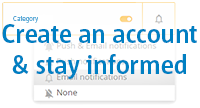One single safety authorisation valid in 31 EASA Member States.
 Europe has centralised the process to authorise third-country (non-EU) operators performing commercial air transport operations to EU territories, thereby replacing various schemes of the EASA Member States previously in place. Instead, a single safety authorisation is issued centrally by the European Union Aviation Safety Agency (EASA).
Europe has centralised the process to authorise third-country (non-EU) operators performing commercial air transport operations to EU territories, thereby replacing various schemes of the EASA Member States previously in place. Instead, a single safety authorisation is issued centrally by the European Union Aviation Safety Agency (EASA).
View the TCO application form
Background
The European Parliament and the Council tasked EASA to manage a single European system for vetting the safety performance of foreign air carriers. In doing so, EASA issues safety authorisations to foreign air carriers when satisfied that they comply with minimum international (ICAO) safety standards and applicable airspace user requirements in EU airspace.
Applicability of Part-TCO
Any third-country operator that intends to perform commercial air transport (CAT) operations into, within or out of any of the following territories requires a TCO authorisation issued by EASA:
- the 27 Member States of the European Union
- the 4 EFTA States (Iceland, Liechtenstein, Norway and Switzerland)
- the following territories in which Regulation (EU) 2018/1139, the so called “Basic Regulation” applies: Åland Islands, Azores, Madeira, Canary Islands, Guadeloupe, French Guiana, Martinique, Réunion, Saint-Martin, Mayotte
A TCO authorisation is not required for operators only overflying the abovementioned territories without intended landing.
As a result of the decision of the United Kingdom to leave the European Union, foreign air operators are no longer required to hold an EASA TCO authorisation in order to operate to the United Kingdom.
For further information on the applicability of Part-TCO, please see the section “Applicability” within the Frequently Asked Questions (FAQ).
One-Off notification flights
A regulatory provision (TCO.305 One off notification) is available to allow certain flights to be operated without a TCO authorisation. This provision is solely applicable to the following cases:
- flights that are performed in the public interest, to address an urgent need, such as humanitarian missions and disaster relief operations; and
- air ambulance flights that are performed to move sick or injured patients between healthcare facilities or deliver patient medical care.
Risk-based approach
EASA employs a risk-based approach for TCO assessments which is based on the continuous analysis of credible safety data. The lower EASA’s confidence in a foreign operator’s safety performance or the less credible data available for an operator or the State in which the operator is certified, the more comprehensive the assessment. For operators with high confidence level, a simple and fast desktop review of completed questionnaires and material evidence is sufficient, whereas operators with lowered confidence levels will be assessed more diligently. Where necessary, EASA will invite operators for a technical meeting in Cologne, or EASA will request to perform the assessment at the operators headquarters.
Authorisation process
Following its TCO assessment, EASA validates the foreign Air Operator Certificate (AOC) by issuing an EASA TCO authorisation accompanied by Technical Specifications, setting out the scope of operations authorised in the EU. The status of authorised aircraft is reflected in a dedicated electronic publication (TCO web-interface).
The initial TCO authorisation process consists of three distinct phases: Application, Evaluation, Authorisation. Futhermore, all TCO authorisation holders are subject to EASA continuous monitoring of their safety performance, which includes periodic file reviews. A dedicated web-based software application supports communications between EASA and the operator.
According to the criteria set in the TCO Regulation and following a risk-based approach, EASA may decide to organise technical meetings and on-site audits as part of the authorisation process.
This authorisation process is subject to fees in accordance with EASA’s “Fees and Charges” Commission Implementing Regulation (EU) 2025/2347.
The EU "Air Safety List"
The EU Air Safety List mechanism pursuant to the Safety List Regulation (EC) No 2111/2005 is governed by the European Commission in Brussels. EASA and the European Commission ensure that both instruments are closely coordinated. Air carriers subject to a ban or operating restriction under the EU Air Safety List mechanism remain eligible to apply to EASA for an assessment under Part-TCO. Article ART.205 of the TCO Regulation (EU) No 452/2014 set out the procedure for the assessment of an applicant air operator that is subject to an operating ban pursuant to the Safety List Regulation.
Further information
A section containing Frequently Asked Questions and additional information is available to stakeholders.
TCO Regulation
The document Easy Access Rules for Third Country Operators contains all elements of the regulatory framework applicable in the TCO authorisation process:
- Commission Delegated Regulation (EU) 2023/659 of 20 December 2022 amending Regulation (EU) No 452/2014 as regards the technical requirements and administrative procedures related to air operations of third country operators. Annex 1 (Part-TCO) contains the requirements for the operator, while the authority requirements regarding the authorisation of foreign operators are laid down in Annex 2 (Part-ART).
- Acceptable means of Compliance (AMC) and Guidance Material (GM) related to the TCO Regulation
- EASA Management Board Decision 01-2023 on the TCO Rules of Procedure
How third-country operators should apply
- Study the regulatory framework using the Easy Access Rules for Third Country Operators.
- Appoint a focal point for TCO Authorisation in your organisation.
- Review the section containing Frequently Asked Questions.
- Review applicable parts of the EASA’s “Fees and Charges” Commission Implementing Regulation (EU) 2025/2347.
- If your operation is subject to Part-TCO, download the application form and apply for a TCO Authorisation.
- If you do not hold a TCO Authorisation and you intend to perform an air ambulance flight or other urgent flight performed in the public interest (e.g. humanitarian missions or disaster relief operations), download and submit the One-off notification form.
- Address questions to tco [at] easa.europa.eu (tco[at]easa[dot]europa[dot]eu).
 Stay informed on Third Country Operators:
Stay informed on Third Country Operators:
- Create an EASA account
- Follow the category "Third Country Operators"
- Decide how you want to be notified